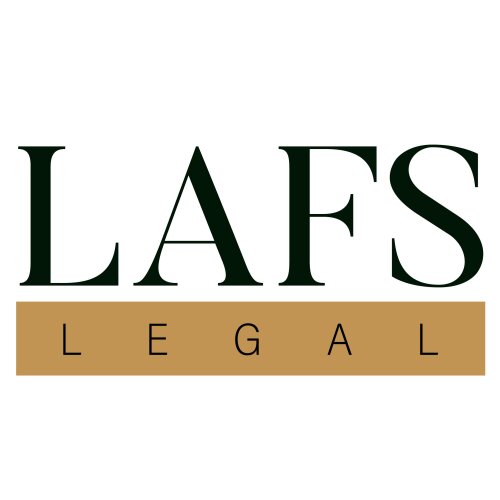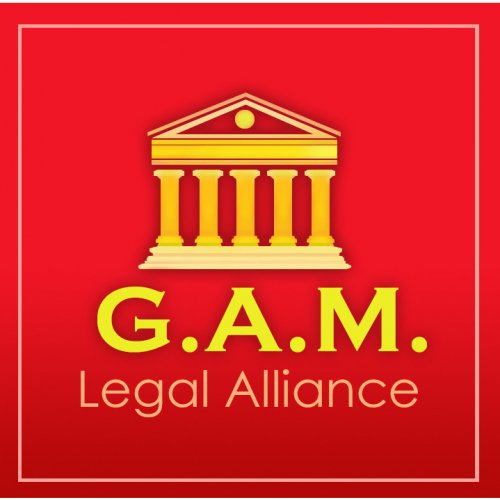Best Real Estate Due Diligence Lawyers in Thailand
Share your needs with us, get contacted by law firms.
Free. Takes 2 min.
Free Guide to Hiring a Real Estate Lawyer
Or refine your search by selecting a city:
List of the best lawyers in Thailand
Legal guides written by SIAM LEGAL INTERNATIONAL:
- Defamation Laws in Thailand: Criminal Charges and Civil Suits
- The State of Thailand’s Long-Term Resident (LTR) Visa Program in 2025
- The Penalties Of Not Filing Your Income Tax Return As A Foreigner In Thailand
Legal guides written by Smart Legal Solutions:
- Main Legal Measures to Protect Foreign Investment in Thailand
- The importance of the geographical indications for the Thai economy
Thailand Real Estate Due Diligence Legal Questions answered by Lawyers
Browse our 2 legal questions about Real Estate Due Diligence in Thailand and read the lawyer answers, or ask your own questions for free.
- Selling my property in Krabi
- I'm the owner of a condominium in Krabi and have a ready foreign buyer. How can I get assistance to draft a sales contract between me and the buyer for a full sale without a property agent?
-
Lawyer answer by SB Law Asia
Our firm are experts in Thai property law and would be very pleased to assist you in this matter. Please feel free to contact us directly. The initial consultation is free.
Read full answer - Estate dealer Will not pay back.
- My Thai wife has paid money to an estate dealer for a land plot, the land should have been ready for overtaking, but due to different reasons it is not ready for overtaking, according to the contract, my wife should be able to get her money back, but the estate... Read more →
-
Lawyer answer by GPS Legal
GPS Legal has extensive experience in Real Estate Law, Contract Law, and dispute resolution in Thailand. If you choose to hire an attorney, please contact us directly
Read full answer
Thailand Real Estate Due Diligence Legal Articles
Browse our 9 legal articles about Real Estate Due Diligence in Thailand written by expert lawyers.
- 5 Common Legal Pitfalls in Thai Real Estate and How to Avoid Them
- Nestled within the paradisiacal landscapes and burgeoning economic dynamism of Thailand lies a high-stakes real estate market rife with both rapturous potential and formidable legal complexities. This idyllic Southeast Asian terrain has emerged as a globally-coveted destination for luxury residential developments, commercial property investments, and ambitious real estate endeavors spanning... Read more →
- How Foreigners Can Own Property in Thailand
- For foreigners considering property ownership in Thailand, understanding the process and relevant laws is crucial. These laws are not typically compared to the property ownership laws of other countries, as the Kingdom strictly regulates which foreigners can own property, the circumstances under which they can do so, and the types... Read more →
- Tax Implications of Buying Property in Thailand: A Comprehensive Guide
- You might be an expat in Thailand hunting for your next property investment, and interested in buying a condo in one of the world’s fastest-moving cities, Bangkok; or perhaps you’re an investor who is also in awe of the stunning and ever-popular vacation island of Phuket, or a retiree considering... Read more →
About Real Estate Due Diligence Law in Thailand
Real Estate Due Diligence in Thailand is a crucial process for both Thai nationals and foreigners interested in purchasing property. It involves a comprehensive examination of legal rights, compliance with regulatory requirements, and an evaluation of any potential issues that could affect the property ownership. This process ensures that buyers fully understand the legal status of the property, any encumbrances, and their rights as owners.
Due diligence in Thailand typically involves checking property titles, land use restrictions, government approvals, environmental regulations, and zoning laws. Completing this process accurately helps avoid potential legal issues and financial loss in the future. Given Thailand's unique property laws, professional guidance during the due diligence process is highly recommended.
Why You May Need a Lawyer
There are several circumstances where you may require legal help in Real Estate Due Diligence in Thailand:
- Foreign Ownership: Thai property regulations are complex, especially for foreigners who may be unaware of restrictions, including the prohibition on land ownership.
- Complex Transactions: Large or intricate property deals often require the expertise of a lawyer to ensure all terms are clearly defined and legally binding.
- Title Examination: Confirming the legitimacy of the property's title can be challenging; a lawyer can help verify title deeds and trace the history of ownership.
- Contract Review: Legal professionals review all contracts to ensure they are fair, comprehensive, and in compliance with Thai law.
- Dispute Resolution: In case of conflicts or discrepancies, having a lawyer helps mediate or litigate the dispute effectively.
Local Laws Overview
Several key aspects of local laws are particularly relevant to Real Estate Due Diligence in Thailand:
- Thai Land Code: Restricts land ownership by foreigners, although there are exceptions through structures like leasehold and company ownership.
- Condominium Act: Allows foreign nationals to own up to 49% of the total space in a condominium building.
- Environmental Regulations: Development projects must comply with environmental protection laws, which can influence property use.
- Zoning Laws: Govern how land within certain areas can be used, impacting commercial and residential developments.
- Title Verification: The legal history of property must be verified through the Land Department to ensure proper ownership.
Frequently Asked Questions
1. Can foreigners own land in Thailand?
No, foreigners generally cannot own land in Thailand directly, but they can own condominiums or invest through a Thai company or leasehold agreements.
2. What is a leasehold agreement?
A leasehold agreement allows individuals to lease land for a period typically up to 30 years, with an option to renew, providing a common solution for foreign investors.
3. How can I verify a property title?
By obtaining a title search conducted by the Land Department in Thailand, where lawyers often facilitate this process to ensure legitimacy.
4. What should be included in a sale and purchase agreement?
The agreement should outline the terms of sale, payment schedule, description of the property, obligations of each party, and any contingencies.
5. What are the tax implications of buying property in Thailand?
Taxes can include transfer fees, withholding tax, stamp duty, and specific business tax, each varying depending on the transaction specifics.
6. How long does the due diligence process take?
The due diligence process can take a few weeks to several months, depending on the complexity of the property and legal requirements.
7. What risks are involved in property investment in Thailand?
Risks include unclear title deeds, legal disputes, environmental noncompliance, and changes in land use regulations.
8. Can real estate agents assist with due diligence?
While real estate agents can provide some assistance, it is advisable to hire a lawyer for more thorough legal checks.
9. What is a Chanote?
A Chanote is a title deed, providing full ownership of the land without any encumbrances, and is the strongest form of property title in Thailand.
10. Are there any restrictions on beachfront properties?
Yes, beachfront properties often have public access rights and specific building regulations to preserve the natural environment.
Additional Resources
Here are some resources that can be helpful for those seeking legal advice in Real Estate Due Diligence in Thailand:
- Thai Land Department: Offers official information and services related to land ownership.
- Board of Investment of Thailand (BOI): Provides investment-related legal guidance and support.
- Thailand Real Estate Association: An association providing various resources related to property buying and selling.
Next Steps
If you need legal assistance in Real Estate Due Diligence in Thailand, consider the following steps:
- Identify a reputable law firm that specializes in real estate law and has experience with international clients.
- Arrange an initial consultation to discuss your specific requirements and understand the scope of services offered.
- Provide all necessary documents and information related to the property in question for a comprehensive assessment.
- Engage the lawyer to perform the due diligence, ensuring all legal, regulatory, and financial aspects are thoroughly reviewed.
- Review the findings with your lawyer and decide on the appropriate course of action for your real estate investment.
Lawzana helps you find the best lawyers and law firms in Thailand through a curated and pre-screened list of qualified legal professionals. Our platform offers rankings and detailed profiles of attorneys and law firms, allowing you to compare based on practice areas, including Real Estate Due Diligence, experience, and client feedback.
Each profile includes a description of the firm's areas of practice, client reviews, team members and partners, year of establishment, spoken languages, office locations, contact information, social media presence, and any published articles or resources. Most firms on our platform speak English and are experienced in both local and international legal matters.
Get a quote from top-rated law firms in Thailand — quickly, securely, and without unnecessary hassle.
Disclaimer:
The information provided on this page is for general informational purposes only and does not constitute legal advice. While we strive to ensure the accuracy and relevance of the content, legal information may change over time, and interpretations of the law can vary. You should always consult with a qualified legal professional for advice specific to your situation.
We disclaim all liability for actions taken or not taken based on the content of this page. If you believe any information is incorrect or outdated, please contact us, and we will review and update it where appropriate.
Browse real estate due diligence law firms by city in Thailand
Refine your search by selecting a city.

















